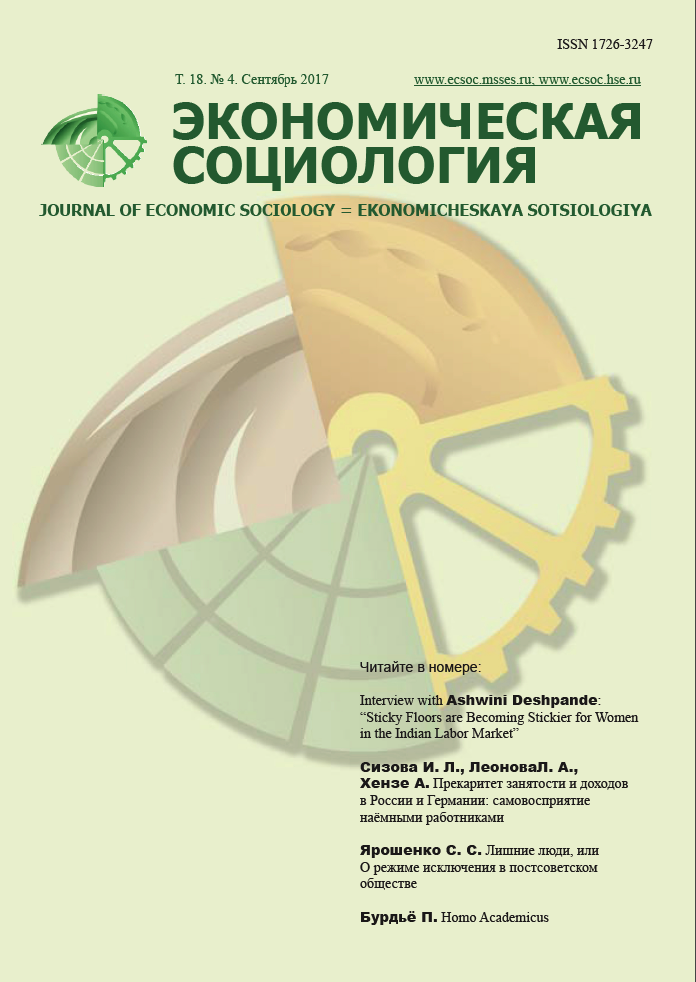Surplus People, or About the Regime of Social Exclusion in Post-Soviet Russia
Abstract
This paper examines the regime of social exclusion in post-socialist conditions: institutionally organized restriction of access to assets necessary to achieve material well-being and to be integrated into the post-Soviet market society. A specific form of social exclusion, formed in the process of market transformation and conditioned by two ways of managing poverty, is considered. First, against the backdrop of deindustrialization in the 1990s, extreme poverty appears, and adaptation to the market occurs through defensive survival strategies from places of employment. Secondly, in the situation of the formation of the market service sector in the 2000s, poverty becomes persistent and its administration is strengthened through the construction of a truncated social citizenship and coercion to low-wage labor. From the results of longitudinal qualitative research from 1999 to 2010 among the registered poor in one Russian region, a comparison is made between structures of opportunities, the practices used, and the achieved results. It is proven that the formation of a market economy of service in post-Soviet society is accompanied by the creation of a layer of “superfluous,” displaced to the periphery of the labor market, compensating low wages with status forms of rewards, and mobilizing resources from other areas to cover low incomes. Ignoring their experience of resistance and consolidating social distance with low wages and a lack of socially acceptable alternatives, help to mystify the process of extracting profit from meaningful activities. The conclusion is substantiated that the exclusion zone will expand until a method of normalizing the market economy of services has been found. A variant of the development of sociological institutionalism is suggested, in which institutions are defined by the degree of concentration of actions for the use of available opportunities.













